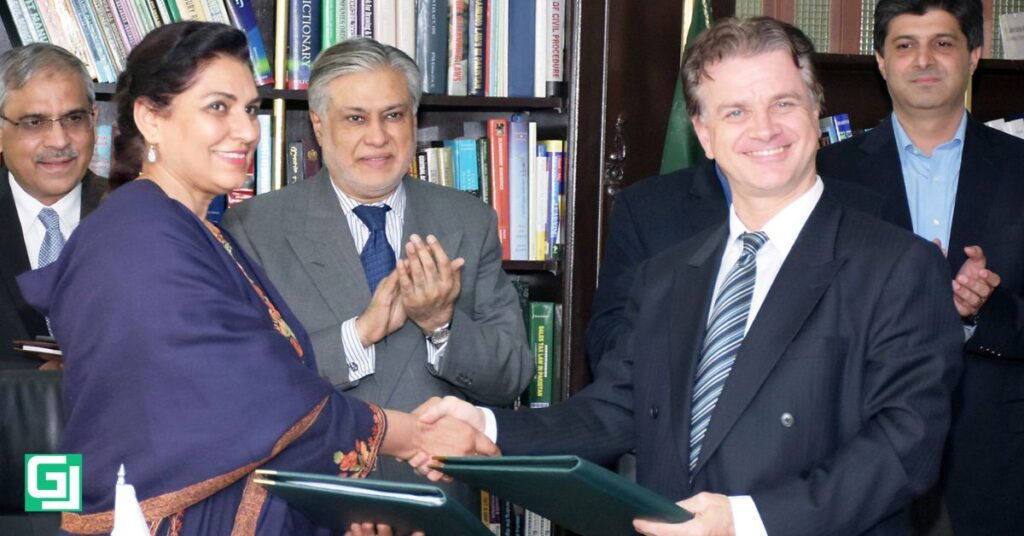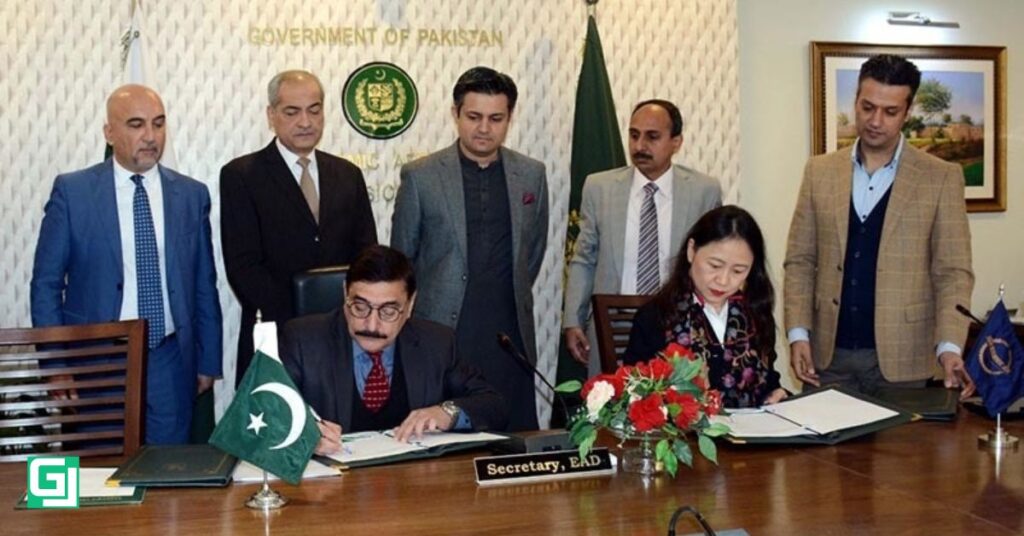The Economic Affairs Division (EAD) of Pakistan, established in the early years after independence, functions under the Ministry of Economic Affairs Division as the nation’s primary body for managing external aid and debt. Based in Islamabad, it was created to streamline negotiations with international donors and financial institutions such as the World Bank, ADB, and UN agencies. Over the decades, the economic affairs division Pakistan has played a central role in securing loans, grants, and technical assistance to support development projects. Its milestones include debt restructuring agreements and partnerships that fueled growth in energy, infrastructure, and social sectors. Today, the Pakistan economic affairs division continues to be a cornerstone of economic diplomacy, transparency, and global cooperation. This makes it one of the most influential divisions shaping Pakistan’s financial future.
Historical Background of the Economic Affairs Division
The Pakistan Economic Affairs Division emerged soon after independence when the government recognized the importance of coordinating foreign aid. Initially, multiple ministries negotiated separately with donors, creating duplication and inefficiencies.
In response, a specialized entity was formed to centralize negotiations, aid monitoring, and debt management. Over time, the economic affairs division developed into an authoritative body, particularly during times of crisis when international assistance became vital for reconstruction, infrastructure, and social programs.
Key Functions and Mandate
The economic affairs division Pakistan has a broad mandate, including:
- Negotiating and securing foreign aid from bilateral and multilateral partners.
- Managing external debt and ensuring repayment commitments are met.
- Coordinating technical cooperation programs across ministries.
- Monitoring aid utilization and ensuring funds align with national goals.
- Compiling external debt statistics for transparency.
- Engaging in economic diplomacy to foster long-term partnerships.
This makes the ministry of economic affairs division the government’s chief interface for international economic cooperation.
Organizational Structure of the Ministry of Economic Affairs Division
The Ministry of Economic Affairs Division operates with a hierarchical yet specialized structure. It is headed by the Federal Minister for Economic Affairs, with a Federal Secretary managing day-to-day operations. Supporting this leadership are several wings:
- World Bank Wing – Liaises with IBRD and IDA.
- ADB and Japan Wing – Coordinates projects with ADB and Japan.
- UN Wing – Manages UNDP, UNICEF, and related programs.
- China Wing – Handles initiatives under the China-Pakistan Economic Corridor (CPEC).
- Paris Club Wing – Focuses on debt restructuring.
- Economic Cooperation Wing – Oversees regional development forums.
- Research & Debt Management Wing – Ensures data-driven decisions.
This structure allows the economic affairs division to address diverse responsibilities with specialization.
Role in Managing External Aid and Partnerships
Foreign aid is often essential for development, and the Division of Economic Affairs Pakistan ensures that aid aligns with the country’s strategic priorities. For example:
- Infrastructure projects such as highways and energy plants.
- Social sector initiatives in health and education.
- Climate resilience and disaster management programs.
By carefully negotiating agreements and ensuring funds are properly utilized, the Pakistan Division of Economic Affairs safeguards accountability and maximizes donor trust.
Debt Management and International Cooperation
Pakistan’s external debt is one of the most pressing economic issues. The Division of Economic Affairs manages this portfolio by:
- Coordinating repayment schedules.
- Negotiating restructuring with creditor groups such as the Paris Club.
- Compiling accurate debt statistics for public and global institutions.
- Ensuring debt sustainability in the long term.
Through these efforts, the ministry of Division of Economic Affairs protects Pakistan’s financial credibility while working toward economic stability.
Economic Affairs Division Pakistan and Multilateral Agencies
The Division of Economic Affairs Pakistan serves as the primary channel for communication with global institutions, including:
- World Bank Group (IBRD, IDA, IFC)
- Asian Development Bank (ADB)
- International Fund for Agricultural Development (IFAD)
- United Nations agencies such as UNDP and UNICEF
- Economic and Social Commission for Asia and the Pacific (ESCAP)
These partnerships not only bring financial assistance but also provide technical expertise, enhancing Pakistan’s development strategies.
Transparency: Economic Affairs Division Official Website and NTN Number
To improve accountability, the Division of Economic Affairs official website offers resources such as annual reports, donor commitments, and project updates. Citizens, researchers, and journalists can track aid flows and agreements, enhancing transparency.
Additionally, the Division of Economic Affairs NTN number ensures that the division’s financial activities are monitored under Pakistan’s tax and audit frameworks. This combination of digital presence and compliance mechanisms strengthens public trust.
Employment Opportunities: Economic Affairs Division Jobs 2020 and 2023
The economic affairs division jobs 2020 and economic affairs division jobs 2023 created opportunities for skilled professionals in finance, economics, and administration. These job advertisements attracted thousands of applicants nationwide, highlighting the division’s reputation as a prestigious workplace.
By offering roles in aid management, debt analysis, IT systems, and donor coordination, the ministry of Division of Economic Affairs continues to draw top talent committed to shaping Pakistan’s financial future.
Major Challenges Facing the Economic Affairs Division
Despite its critical role, the economic affairs division faces several ongoing challenges:
- Rising external debt – Pakistan’s growing debt burden requires innovative solutions.
- Dependence on foreign aid – Over-reliance creates long-term sustainability concerns.
- Cybersecurity threats – A recent hacking incident highlighted risks to official communications.
- Capacity gaps – Training and modernization are needed for staff to manage complex aid flows.
- Balancing donor and national priorities – Ensuring aid supports Pakistan’s development agenda without compromising sovereignty.
Reforms and Modernization Efforts
To overcome these issues, the Division of Economic Affairs Pakistan has initiated reforms:
- Digital monitoring systems to track donor commitments.
- Capacity-building programs for staff.
- Enhanced debt management tools for accuracy and sustainability.
- Public communication through the official website for transparency.
- Streamlined coordination mechanisms with line ministries to avoid duplication.
These reforms aim to strengthen the ministry of Division of Economic Affairs, making it more responsive and accountable.
The Future of the Pakistan Economic Affairs Division

Looking forward, the Pakistan Division of Economic Affairs will be pivotal in shaping the nation’s financial resilience. Areas of focus include:
- Expanding partnerships with non-traditional donors.
- Promoting green financing and climate-related aid.
- Enhancing public trust through transparency measures.
- Diversifying funding sources beyond loans and grants.
The Division of Economic Affairs must adapt to global economic shifts while ensuring that foreign assistance drives inclusive and sustainable growth.
Conclusion
The economic affairs division is far more than a bureaucratic office it is the bridge connecting Pakistan to the international financial world. By negotiating aid, managing debt, and fostering partnerships, the ministry of Division of Economic Affairs plays a central role in national development.
Despite challenges such as rising debt and cybersecurity risks, reforms and modernization initiatives show promise. For policymakers, professionals, and citizens alike, understanding the Division of Economic Affairs Pakistan provides insight into how international cooperation shapes the country’s economic destiny.
FAQs
What is the main role of the Economic Affairs Division?
The economic affairs division manages Pakistan’s foreign aid, debt portfolio, and international partnerships.
Where is the Economic Affairs Division located?
It is headquartered in the Pakistan Secretariat on Constitution Avenue, Islamabad.
What are Economic Affairs Division jobs 2020 and 2023?
These were recruitment campaigns where the economic affairs division Pakistan offered employment opportunities in economics, IT, and administration.
How can I access the Economic Affairs Division official website?
The economic affairs division official website is available through government portals, providing updates, reports, and donor information.
Why is the Economic Affairs Division NTN number important?
The economic affairs division NTN number is part of its compliance framework, ensuring transparency in financial dealings.

